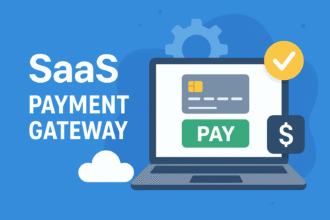API Integration Platform: Key to Effective Business Process Automation
Efficiency is the watchword of modern business. Using an API integration platform has become an indispensable part of any organisation that tries to streamline its processes to improve overall productivity efficiently. This article explains the role of the API integration platform in automating business processes, thereby giving insight into how such platforms work and their respective benefits.
How API Integration Platforms Work

API integration works like a bridge between multiple software applications; it lets them communicate with each other and share data freely. Interoperability is critical in any business that operates on different systems running parallel to one another. The API integration platform can let organisations automate repetitive tasks to reduce human labour involvement, lessening the chances of errors. The ultimate goal is to create a more cohesive workflow.
Role of Enterprise Integration Platforms
While these are some of the complexities of larger organisations, enterprise integration platforms address a step further than facilitating data exchange and supporting the integration of legacy systems into modern applications. In that respect, leveraging an enterprise integration platform ensures that businesses maintain operations capable of agility toward changes within the market. This capability for adaptability is critical in maintaining a competitive advantage.
System Integration Platforms Explained
The system integration platform is a medium built to interconnect the different IT systems within an organisation. This interconnection allows data and processes to be centralised, enabling the same operational framework within the organisation. A business can benefit from using a system integration platform for improved data accuracy, process efficiency, and enhanced visibility of the different departments, which are crucial for making decisions based on thorough analyses. Benefits of API Integration
In general, the benefits of implementing an API integration platform can include the following:
- Increased Efficiency – Automating most tasks saves hours that employees would have to invest in doing the same work manually, thereby freeing them to deal with higher-value activities.
- Cost Reduction – Reducing errors and fast-tracking operations allows organisations to minimise operational costs.
- Improved Collaboration – An integrated approach encourages and hence assures a better understanding and, therefore, collaboration among teams by breaking silos within an organisation.
- Scalability – As businesses grow, so can an integration platform by adding in new systems and processes to maintain efficiency.
- Improved Customer Experience – Quicker and more accurate responses to customer inquiries increase satisfaction and, ultimately, customer loyalty. Visit Arconq for further details.
API Integration Challenges
As much as there are numerous benefits in terms of business operations, the implementation of API integration in an organisation may have challenges. Some of the common issues faced by organisations include:
- Complexity of Integration – Most of the time, integrating different systems can be very complex. Such an integration would involve proper planning and a smooth execution process.
- Data Security – Data must be kept secure during integration. A data breach could be disastrous and may lead to unprecedented damage.
- Skill Shortage – In most organisations, not all relevant technical skills may be available to deploy and manage the integration platform in the best possible manner.
All these issues need to be handled in a strategic manner or, for that matter, with the assistance of experts in the field.
Selection of Appropriate Integration Platform
The very first step to success involves choosing the correct integration platform. Factors to look at in choosing include:
- Compatibility – The platform should be able to integrate with existing systems and any applications one will have in the future.
- Ease of Use – An easy-to-navigate interface can significantly reduce the learning curve for employees.
- Support and Resources – A good provider will have extensive support and a full suite of documentation to help a company along the way in its integration.
- Cost – Evaluate the pricing model to ensure it suits your organization’s budget and is value-ensuring.
Real-World Applications
API integrations are put into application in various ways by organizations from different sectors to achieve high performance of business processes. For example, a retail company might integrate its inventory management application with an e-commerce solution. This will ensure that the information about stock on hand is timely and accurate to achieve customer satisfaction and optimization of sales strategies.
Conclusion
In brief, an API integration platform is core to maximizing business process automation. Such a system allows different systems to communicate effectively, and organizations achieve efficiency, cost reductions, and collaboration enhancements. Since businesses are constantly evolving, adopting an enterprise integration platform or system integration platform would become very important for sustenance regarding competitive advantage, which will lead to increasing agility and improving the customer experience.

















